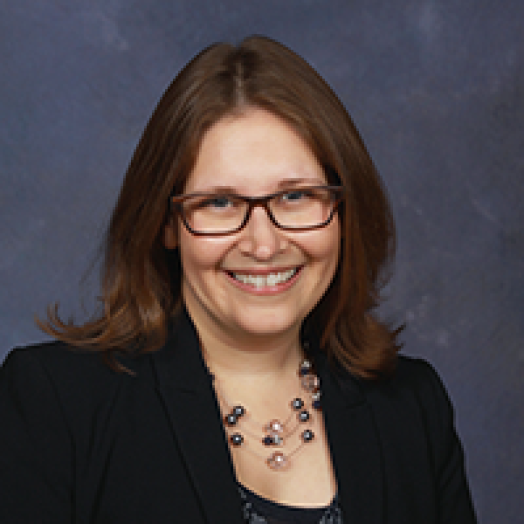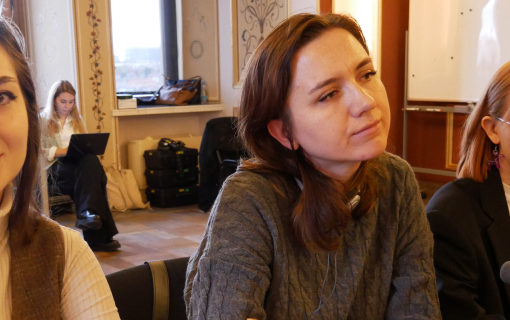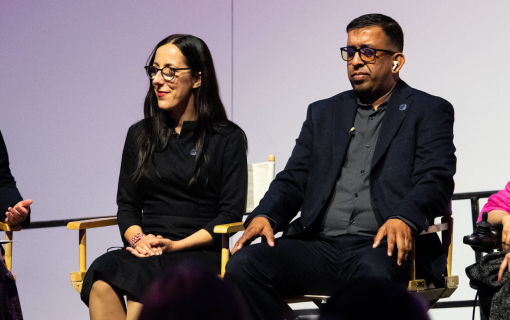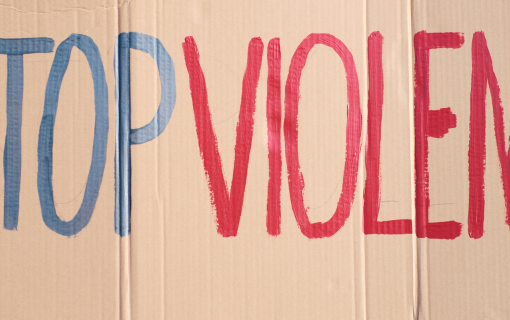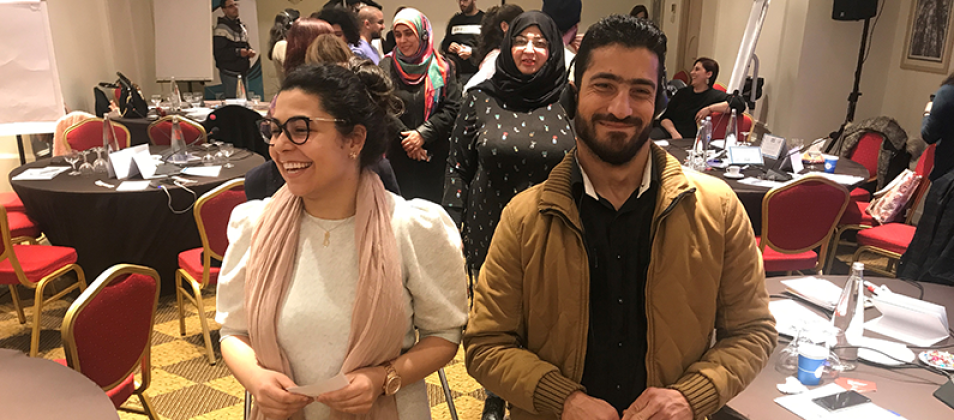
Building Intersectional Coalitions to Address Discrimination and Violence in Lebanon
In Lebanon, where the political rights of marginalized populations, including women and persons with disabilities, are undermined by systematic discrimination and physical and psychological violence, the International Foundation for Electoral Systems (IFES) has partnered with the Lebanese Union for People with Physical Disabilities (LUPD) and ABAAD-Resource Center for Gender Equality to launch the “Identify, Interpret and Respond” (IIR) project. IIR will empower civil society organizations (CSOs) to address political discrimination and violence through coordinated action.
As a first step, IFES Inclusion Advisor Virginia Atkinson and IFES Deputy Director for the Middle East and North Africa Ambar Zobairi collaborated with LUPD and ABAAD to conduct an assessment utilizing IFES’ Intersectionality Assessment Framework methodology. The assessment identified intersectional barriers and opportunities related to political participation of people with multiple social identities, such as disability, gender identity, sexual orientation and religion. The intersection of these and other identities are often complicated by sectarian divisions, compounding barriers to meaningful participation in political life. How such barriers manifest at individual and societal levels is not fully understood. The intersectionality assessment collected information through desk review, key informant interviews with government, security sector, and political and community leaders and focus groups. The focus group discussions included men, women and persons with disabilities drawn from different age, wealth and educational strata and an array of religious identities and geographic regions.
The initial findings from the assessment include:
- Physical inaccessibility to the polling station is a barrier to voting for many people with disabilities, older people and pregnant women;
- Disabled people’s and LGBTQ organizations are not currently working together, but there is an interest and an acknowledgement of the benefits of intersectional coalition-building;
- Youth have advocated to lower the voting age from 21 to 18, but perceive that political parties will not agree due to assumptions about which religions may gain an advantage with these additional citizens on the voter list; and
- Women who marry men from religions different than their own are constricted in their candidate choice as they must vote in their husbands’ home districts, where candidates from the same religious background as the women may not be on the ballot.
Findings will be used to develop an Intersectionality Assessment Report that includes accessible and actionable recommendations for joint CSO advocacy. Participants will have the opportunity to provide feedback on a draft version of the report in order to ensure the assessment process is collaborative and democratic.
“Accessibility to the polling station is not only our problem. It is a problem for the elderly, people with temporary injuries like a broken leg and pregnant women too. We should all advocate together.” – Focus group participant with a physical disability
The next step for the project is coalition-building between Lebanese CSOs so they can recruit and engage allies, policymakers, political parties, human rights advocates and other strategic partners for reform. In March 2019, IFES, ABAAD and LUPD gathered Lebanese organizations representing gender equality, disability rights, LGBTQ rights, refugees, media, health, election observation and other issues for a “Power to Persuade” policy platform workshop. IFES’ “Power to Persuade” curriculum facilitates diverse groups to engage in dialogue around shared values, experiences and opportunities to pursue common goals to defend their rights and reduce violence and discrimination impacting political participation. CSOs participated in activities such as a privilege walk, in which each participant took on a social identity ranging from the son of a wealthy politician to a blind woman from a rural village. The participants were presented with a number of potential opportunities and had to determine if their assigned social identity experienced enough “privilege” to take part in that opportunity or whether they would encounter barriers to their participation in the specific activity, such as whether their family would support them as a candidate or whether they could influence public opinion.
Participants also began the process of crafting tangible policy recommendations to combat discrimination and violence and make society more inclusive in employment, education, governance, legal frameworks and political participation. Over the course of the next few months, ABAAD and LUPD will use their networks to socialize the draft policy platform with stakeholders across the country and solicit input from a wide array of marginalized people. CSOs from across the country will be invited to sign on to the platform to further expand the cross-sectoral coalition. The final document will be used by the signatories as a tool for advocacy with community and national leaders.





